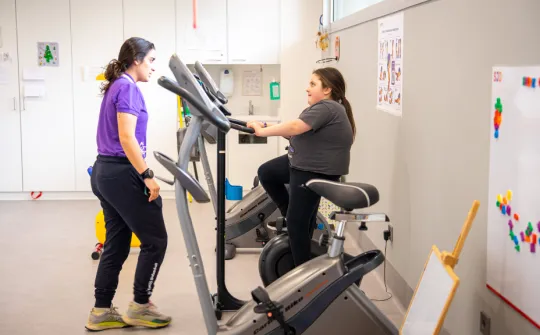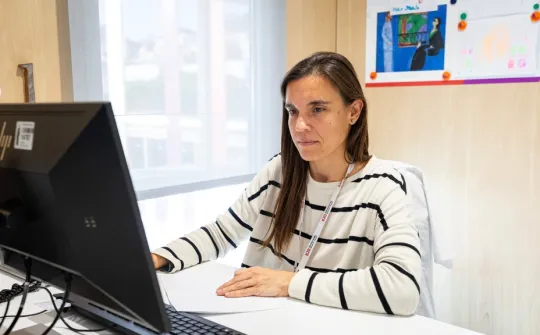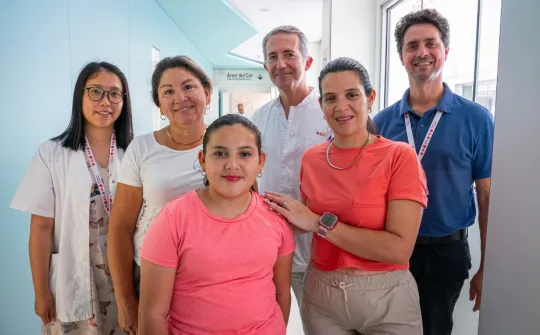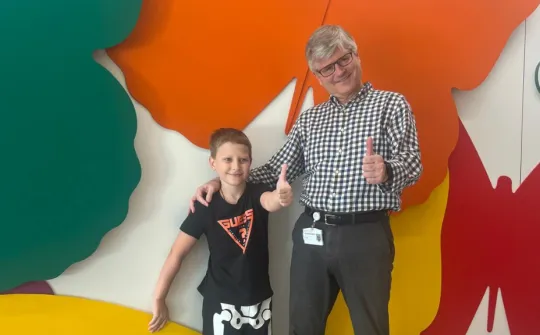"SJD Barcelona Children's Hospital diagnosed and treated our son's neuroblastoma and we could go back home in just one month"
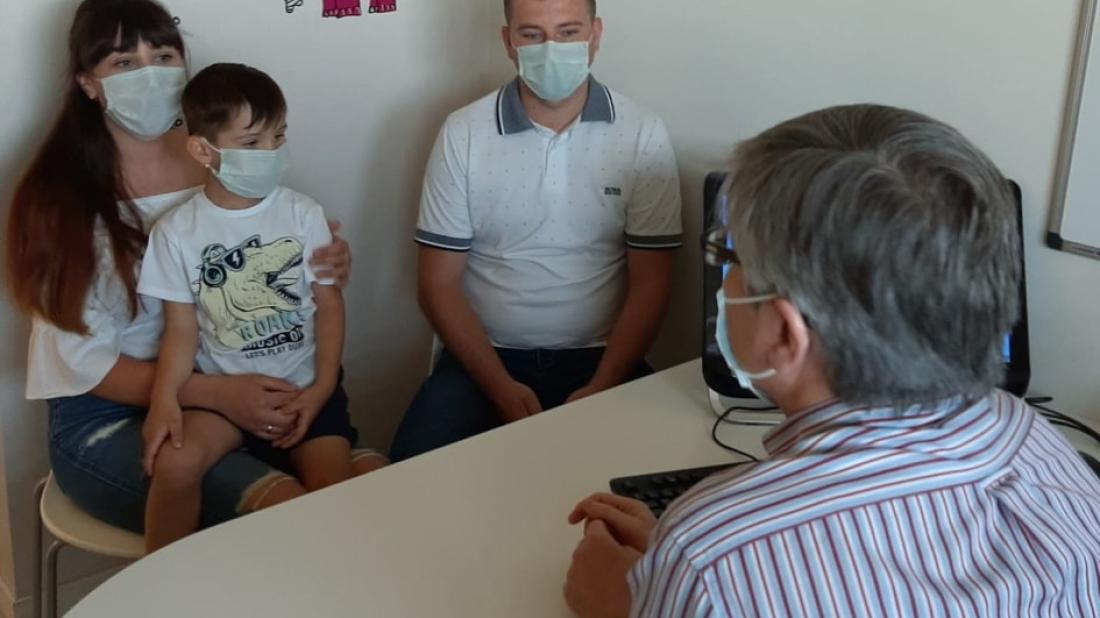
A family from Ukraine tells the story of their journey in the COVID-19 era to have their son treated for neuroblastoma and the healthcare they received at the Hospital.
Daniyl is four years old and travelled from Ukraine to be treated for neuroblastoma at the SJD Barcelona Children’s Hospital. A neuroblastoma is a tumour that originates in the autonomic nervous system, thus allowing the child to survive in the birth canal, and is the most common tumour in the first five years of life. "The SJD Barcelona Children's Hospital diagnosed and treated our son's neuroblastoma in just one month. When we tell our family and friends they can hardly believe it. We tried to find out what was wrong with Daniyl in our own country for about two months and nobody was capable of telling us, even though they did lots of tests", recalls his mother, Tanya, visibly relieved.
The family arrived in Barcelona from Ukraine on 6 April. Two weeks after carrying out tests and analysing the case, Daniyl was operated on 20 April and the cancer surgery team removed his tumour. And that was that. Doctor Jaume Mora and the Oncology team quickly identified the type of neuroblastoma that Daniyl had, and after analysing his biological characteristics, decided that no other type of treatment was necessary.
Some years ago, the developmental tumour research team of the Sant Joan de Déu Barcelona Children’s Hospital, led by Jaume Mora, identified several genetic markers that make it possible to predict, within 24 hours, how aggressive each neuroblastoma is in order to provide the most suitable treatment. "Having this system of prediction from the outset is essential in sparing children unnecessary treatments", explains the oncologist.
This system allows 50% of neuroblastomas to be treated only with non-aggressive surgery, with Daniyl being a case in point. The other 50% of neuroblastomas are very aggressive and curing them requires the use of the entire therapeutic arsenal currently available: chemotherapy, surgery, radiation therapy and immunotherapy.
Choice of hospital thanks to references from other Ukrainian families
Daniyl's family decided to have their child treated at the SJD Barcelona Children’s Hospital because they had been given "very good references from other Ukrainian families who have been treated here" explains Alexander, the boy's father. "We were told that they specialise in different pediatric tumours, and more specifically in the neuroblastoma, so it was an easy decision. We did not even consider other options".
However, actually getting to Barcelona did not prove to be so easy. As a result of the COVID-19 pandemic, many European countries had shut down their borders and many airlines had ceased to operate. But the family did not give up, and decided to come by car. "We were very frightened that time was running out for Daniyl and that the tumour could spread", his mother recalls. Daniyl and his mother and father managed to leave Ukraine without any problems but were unable to cross the Polish border and were forced to return home after a couple of unsuccessful attempts. In desperation, they knocked on every possible door until a businessman arranged a private flight for them from Kiev to Frankfurt. Once in Germany, they boarded a flight to Barcelona.
Sixty-five families from all over the world have brought their children with neuroblastomas to SJD to be treated
Increasingly more families from all over the world are having their children's neuroblastomas treated at the SJD Barcelona Children' Hospital. There are currently several lines of research and treatments for this condition. Sixty-five families came to the Hospital in 2019, most of them from China, although there were also families from Australia, Argentina, Russia, Germany and South Africa, to name but some.
Most of these families seek the next-generation immunotherapy (naxitamab and omburtamab) that,is only available at this hospital in Europe. The results of the studies conducted in the last 3 years at SJD present a survival rate of above 85% for high-risk neuroblastoma patients, as well as the possibility of a cure for relapsing patients or for those who fail to respond to conventional treatment.
